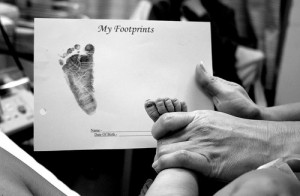This is a guest post from a reader and frequent commenter, Bobbi, who is from Florida. Bobbi loves personal finance blogs and recently began a new hobby — vegetable gardening. Though she’s currently unemployed, she’s exploring new possibilities, and she hopes to use her love for baking and cooking to earn money.
In June, I started working part time. I did this because my mother is getting older and I want to spend time with her. She needs help at home but with the economy the way it is, it will also help my employer. Work has really slowed down this past year on top of the summer season being normally slow in good economic times. The business has also taken quite a few hits recently. We’ve lost a lot of business on an account due to political reasons and another one of our clients filed bankruptcy. There was a lot of stress in the office and I felt like I wasn’t doing my best work. My boss was also very stressed over finances among other things. So basically, I would rather work part time and have a job, than get laid off.
THAT was the beginning of my post for Karen in July. Soon after I sent it to her, everything changed for me though.
I quit my job.
I could go into all the reasons and the ugliness that quitting turned into, but it really doesn’t matter in the long run. Suffice it to say there was a lot of hurt on both sides of this situation and this was the right decision for me.
I am very lucky in that I have an awesome family support system, but I also have an emergency fund and I budget well. I don’t have a mortgage and refinanced my car right before going part time just in case something like this happened. Yeah, I may pay a little more interest over time, but when I do get a job I can always catch it back up and even pay the car off. I have very little debt & utilities are low so I feel it was the right thing for me to do now. I can keep an eye on my mom and help her around the house. She is getting older now and will not go into a ‘home’ so we are going to do what it takes to keep her here. The stories I get to hear daily is so worth it.
So far I have been able to stay busy. We live on a piece of property and mom likes to get in the yard and do yard work so I have been helping her daily. We are a good team. My sister needs help with her kids after school and sometimes I run errands for her. I job hunt too. I have had some interviews but nothing has worked out yet. I know it will eventually. There are so many people looking it is really sad.
I also have since checked into unemployment and I did end up filing for it. Right now it is in a ‘pending’ state and they will call me and my employer to discuss and make a decision. This process will take 4-6 weeks. Hopefully I will have a job soon and won’t need it, but at least the ball is rolling in case I do need it. I am also looking into starting my own business. I have to admit that this option is scary to me, lol. I also think now is a good time to take a little time to myself and figure out exactly what I need to do and want to do. I am ok for now and am looking forward to the next adventure!
Thanks for reading.





